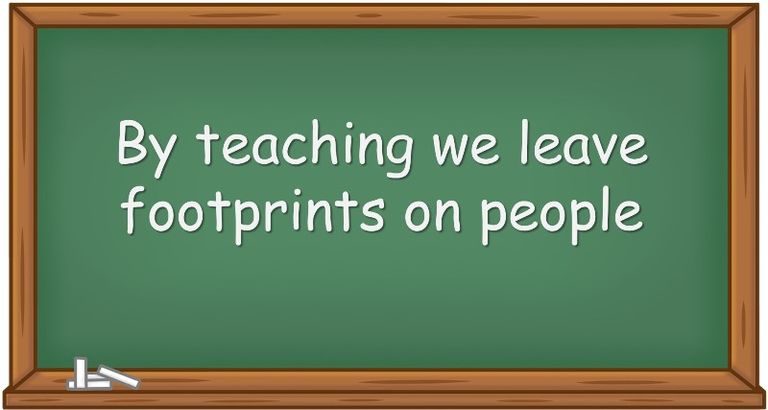Hi Blurt Family!

Edited image, original from pixabay.
The importance of positive reinforcement
Positive reinforcement is the action by which we offer the student a pleasant stimulus when he/she has a successful response or behavior in order to reinforce this behavior. This form of feedback encourages the student and makes them feel motivated to do their immediate task and motivates them to maintain their behavior.
In a classroom there are many student behaviors that we want to maintain, either individually or as a group, because we consider them appropriate and because they will help us in the teaching process. For example, good behavior, interest in answering questions or turning in homework on time.
A positive reinforcement, such as a praise or a well done homework, also has an indirect effect on the perception that students have about themselves, for example, when a student answers a question deserves to have an assertive response, we must remember that sometimes this means for the student to overcome the fear of making a mistake, if we praise his initiative he will take more interest in answering and giving better answers.

Reinforcing interest is very important. Image credit: piqsels.com.
But many times what is most often used in a classroom is negative reinforcement, with negative effects on the learning process, since the constant use of derogatory comments makes the student feel unworthy of praise, that he is not good for what he is studying, producing a low intrinsic motivation.
But we must be careful with this tool, since using it too much or when it is not deserved has counterproductive effects for learning. I am able to get excited with the work of my students, I am not just talking about giving them a pat on the back or placing a star on their homework, it seems to me that there is no better positive reinforcement than convincing them of their value as a person and the value of their abilities, something that can generate personal satisfaction and achievement motivation. But for this we must learn to listen to them, to respect their individuality, and to value their efforts more than their results.
Let's keep in mind that, as teachers, our words can send a student home with the satisfaction of having done a good job, or with the knowledge of not having performed as expected but with the desire to improve, but they can also make them feel unable to complete their academic goals. That is the power of words in a teacher.